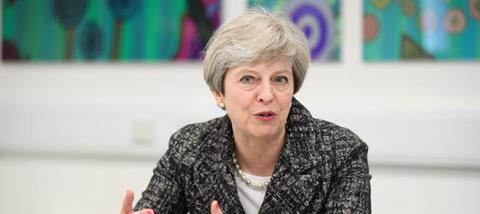
Last week Theresa May got vulnerable. Now I understand she’s a politician in the middle of an election campaign, but I believe her honesty in talking about her struggle with childlessness during an interview with LBC did more than just secure votes. In sharing how her faith had helped and sustained her through the pain of not having children, Theresa May gave a voice to what has historically been a silent story of shame, as well as declaring how faith in Jesus can actually make a practical difference in your life.
Approximately 1 in 5 women will remain childless and for 90% of them it was not by choice. That’s a lot of women who I’m pretty sure would agree with Mrs May about the pain of childlessness.
This struggle is a complex one, challenging your identity and purpose in the world as well as imposing upon you a grief that, despite the passing years, just keeps on giving. While Theresa found her faith helped with the pain of childlessness, after six miscarriages and the unexplained infertility that followed, I found the opposite as I not only had to process my loss, I also had to reconcile it with my faith.
Richard Rohr talks about two halves of life with the first half ending when you fall, fail or experience loss - causing you to question the faith and the God you knew. I used to love a good Christian cliche, from "everything happens for a reason" to "God won’t give you more than you can handle". I believed Christianity offered a neat answer to everything. But when faced with repeated loss and no good reason why, my experience of faith in the face of deep grief was more like CS Lewis' description of a bolted door and silence, leaving me alone in the dark.
I believed in prayer, yet my prayers didn’t save my pregnancies. I believed in God’s peace, yet I my soul was deeply troubled. I was angry with God and I avoided church, a response I’ve heard repeated many times from those who read our blog about childlessness and faith called 'Saltwater & Honey'. I kept my distance from God until one day, a counsellor told me I was grieving. Until that moment I believed grief was reserved for those who’d lost someone who’d lived on this earth, but she taught me grief was everywhere. She also taught me how to grieve and it changed my life.
Western Culture is one of the worst in history at dealing with grief and suffering. It’s one of the reasons I’m so pleased Theresa May talked about the pain of childlessness because so many stories of struggle remain hidden. But scripture doesn’t edit struggle, it embraces it, focusing more on the retelling of an individual’s suffering than the years of fruitfulness that followed, including the stories of infertility. The Bible is amazing at telling it as it is, not only teaching us how to lament but promising a depth of joy on the other side that knocks a fake smile out the window. Like the kernel of wheat Jesus says must die in order to produce more seeds, death and the grief that comes with it are a precondition to the joy and glory of new life that follows.
Unlike Theresa May I wouldn’t say my faith has helped me through the pain of childlessness, instead, I would say the pain of childlessness has helped my faith.
My pain has also given me even more confidence in the good news because Christ speaks into my struggle and gives it purpose. Childlessness is often seen as a failure in our world and even our churches but some of Jesus’ most radical words tear down the idol of the biological family.
While there are lots of family trees in the Bible, the final ones end with Jesus’ name because he made the family of faith the greater reality. Christianity tells me my childlessness no longer matters, not because it’s insignificant but because Jesus says it can no longer define my worth and I never would have discovered this if I hadn’t first experienced the pain of miscarriage and infertility.
Click here to request a free copy of Premier Christianity magazine




























